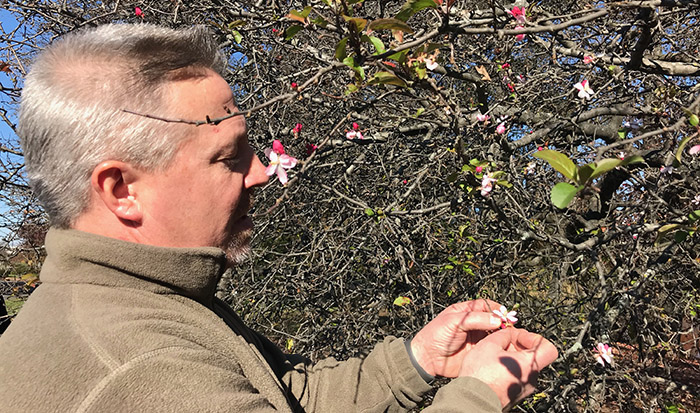
It’s hard to properly install, prune, or maintain a plant if you don’t know what it is, and this is why plant identification is so important. Is there an easy way to identify any plant?
No, but there are methods that make it easier. Ted Szczawinski’s popular “Introduction to Plant Identification” class is online for the first time this year – and it can show you some of these methods. The class teaches students to unlock clues found in the bark, fruit, leaves, and flowers while teaching a step-by-step method designed to limit endless memorizing. The course mixes live, interactive lectures with short videos and other online resources. Below are some questions and answers from instructor Ted Szczawinski.
When did you first get interested in plants?
“I was 14 years old and a sophomore in high school. One of my favorite subjects was biology. “
When it comes to the subject of plant identification, what’s the hardest thing for a student to learn?
“How to trust what they know and realize how a plant’s environment influences its appearance.”
How do you tackle this issue in your course?
“I discuss morphology, a term that describes how plant parts (size, shape and appearance of buds, foliage, flower, fruit, bark and form) are not standard and are not always exactly how they are depicted in drawings, pictures, or words. I realize that answer was pretty deep!”
Are you surprised at how well the class translates to an online format?
“Thanks to colleagues like Jim Orr, a licensed tree expert and instructor for the class, and Kira Svesko, a former IPI student and truly learned individual who has captured the process of identifying each plant’s characteristics through short videos, we’ve been able to allow participants to have a simulated or virtual field experience. This teamwork and support has become essential in getting the right perspective and approach to changing an age old formula of face-to-face instructional activities and transitioning to a virtual experience.”
Introduction to Plant Identification is a two-day online course that takes place February 3 – 4. The cost is $395 if you register before January 27 and $425 after that date. Here is the link to the course page where you can register:
http://www.cpe.rutgers.edu/courses/current/al0267wb.html
If you’re looking for continuing education credits, this class has those as well (Licensed Tree Expert, NJ Urban Community Forestry, International Society of Arborists, and more).
If you want to learn plant identification, register today! We hope to see you there.

Leave a Reply